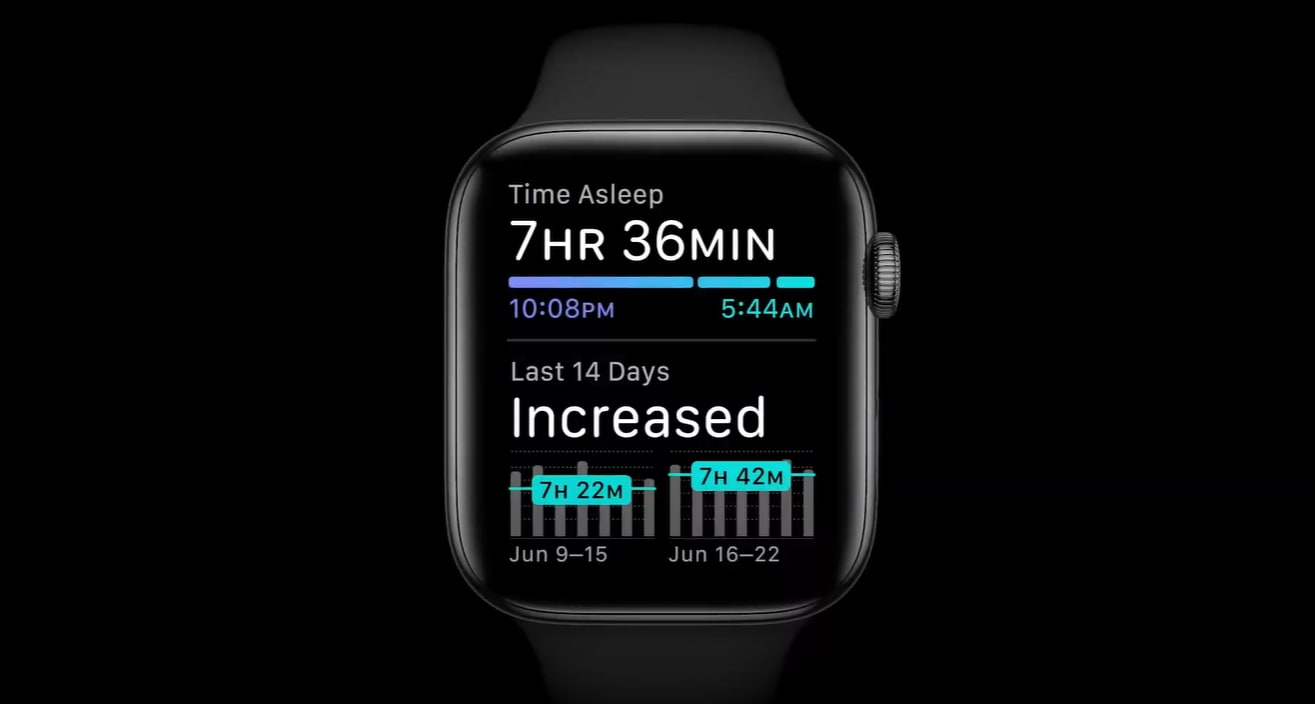Apple and UCLA kick off a three-year depression study

watchOS 7 includes sleep tracking support.
Apple
UCLA on Tuesday said it is launching a three-year study to better understand how factors such as sleep, physical activity, heart rate and daily routines impact symptoms of depression and anxiety.
UCLA is working with Apple to design the study, which will use data collected by the iPhone, Apple Watch and Beddit sleep-tracker, which Apple gained in a 2017 acquisition.
The university said that the pilot phase of the study will kick off this week and involves 150 participants recruited from among UCLA Health patients. From there, the next phases of the research will expand out to 3,000 participants from both the hospital and the student body. Study participants will download an app onto their iPhones, then receive a Beddit sleep monitor and an Apple Watch, which they can use throughout the study.
The study can be done entirely remotely so that people won’t need to risk exposure during the pandemic.
For Apple, health is a growing area of focus. The company has launched software kits for health developers, including HealthKit and ResearchKit, and it’s working on a variety of research collaborations. Its Apple Watch is now firmly focused on medical and fitness use-cases, and the company describes it as an “intelligent guardian” for its users’ health.
Outside of Apple and UCLA, there’s a growing interest in tapping into the data gleaned from smartphones and wearable devices — so-called “digital exhaust” — to determine how people are faring. For instance, companies like Mindstrong Health are looking into whether changes in how people type into a keyboard app can provide early insight into their mental health status.
Many mental health experts believe there is some meaningful signal from these consumer devices, even if it’s a small one, but there needs to be large-scale studies to truly understand the clinical value.
“I think it’s really exciting,” said Dr. John Torous, the director of digital psychiatry of Beth Israel Deaconess Medical Center. “This really shows that digital mental health research is really accelerating, and we’re moving to the next phase of development.”
Torous said that it’s an important step to see companies like Apple getting involved.
“These are large-scale studies really trying to answer core questions about whether these digital technologies will work for mental health.”




